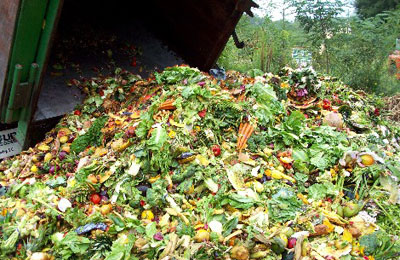
Bahrain...ninth worst offender in environmental impact
Bahrain on list of 'wasteful' countries
MANAMA, October 1, 2014
Bahrain is one of the most wasteful nations on earth, according to a new report from a leading wildlife conservation organisation.
The World Wildlife Fund's (WWF) 2014 Living Planet Report, published recently, named Bahrain as the ninth worst offender in terms of the environmental impact it has on the planet, per head of population, said a report in the Gulf Daily News (GDN), our sister publication.
Kuwaitis had the biggest ‘ecological footprint’ - meaning they consume and waste more resources per head than any other nation - followed by Qatar and the UAE.
The rest of the top eight was made up of Denmark, Belgium, Trinidad and Tobago, Singapore and the US, with Bahrain and Sweden in ninth and tenth place, respectively.
"The size and composition of a nation's per capita ecological footprint reflects the goods and services used by an average person in that country, and the efficiency with which resources, including fossil fuels, are used in providing these goods and services," said the report, which was created in collaboration with the Zoological Society of London, the Global Footprint Network and the Water Footprint Network.
"Contributions to the global ecological overshoot vary across nations.
"For example, if all people on the planet had the footprint of the average resident of Qatar, we would need 4.8 planets. If we lived the lifestyle of a typical resident of the US, we would need 3.9."
However, many poorer countries - including India, Indonesia and the Democratic Republic of Congo - were found to have an ecological footprint that was well within the planet's ability to absorb demand.
The report found that human being's demands on the Earth were now 50 per cent greater than nature can bear, with trees being felled, groundwater pumped and carbon dioxide emitted faster than the planet can recover.
It added that the world's populations of fish, birds, mammals, amphibians and reptiles had fallen by 52 per cent between 1970 and 2010, far faster than previously thought.
Environment Friends Society president Dr Khawla Al Muhannadi explained that in order to reduce consumption, people must adapt to a greener lifestyle.
"If living a green lifestyle is taught at schools and even at preschools, much of the negative impact could be avoided," she told the GDN.
"Bahrain will be running out of landfills or lands used to bury waste, that's why incineration was considered by the government as an alternative.
"However our society and other environmental activists opposed the idea and we explained that incinerators are big problems and certainly not a solution.
"The main reason for the waste management problem and many other environmental issues is individuals' actions and behaviours. We consume a lot and produce huge amount of waste everyday unnecessarily.
"An example of that is food that we leave in our kitchens until it expires or the amount of food we cook and then throw because it's more than what we need. We also buy lots of packages that end up as waste.
"Water consumption is also very high, as we still wash our teeth with water from the tap instead of a glass of water. When we wash for prayer, we consume a huge amount of water that could have been saved if we were more careful.
"It makes no sense at all to waste this amount of water when we are in a very dry area with no rivers or rain and when our underground water is almost depleted." - TradeArabia News Service







